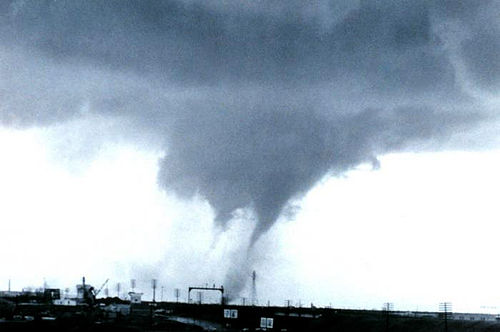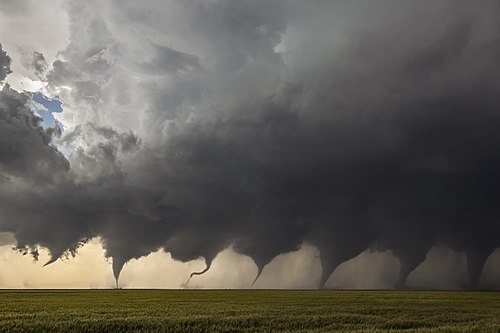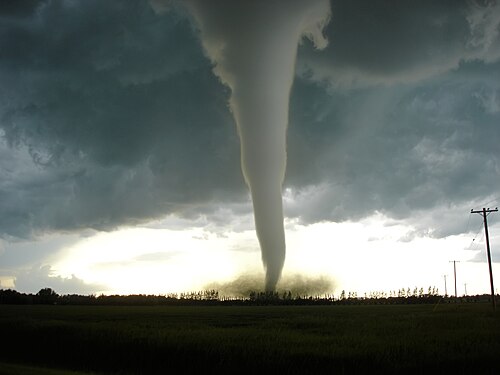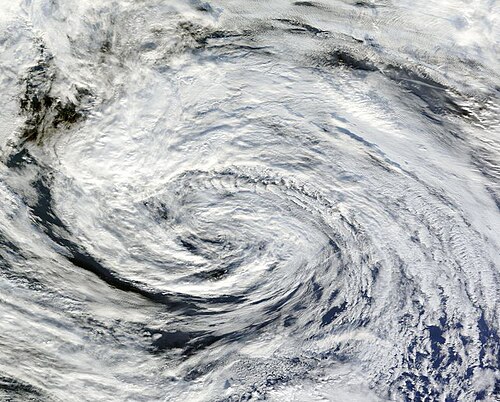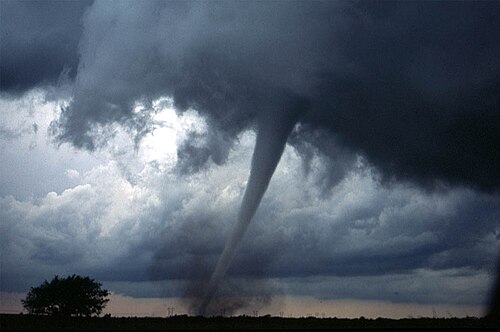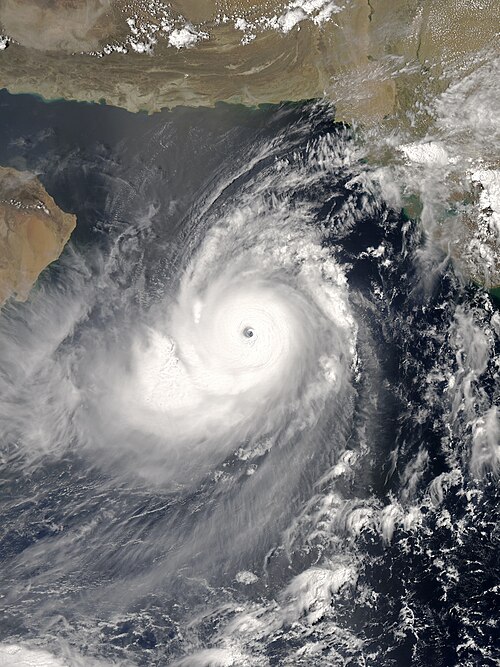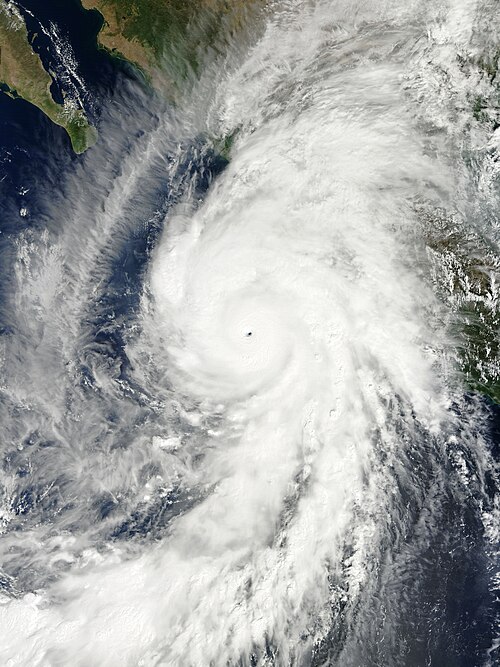Tornadonoun
(meteorology) A violent windstorm characterized by a mobile, twisting, funnel-shaped cloud.
Tornadonoun
A violent whirling wind; specifically (Meteorol.), a tempest distinguished by a rapid whirling and slow progressive motion, usually accompaned with severe thunder, lightning, and torrents of rain, and commonly of short duration and small breadth; a small cyclone.
Tornadonoun
a localized and violently destructive windstorm occurring over land characterized by a funnel-shaped cloud extending toward the ground
Tornadonoun
a purified and potent form of cocaine that is smoked rather than snorted
Tornado
A tornado is a violently rotating column of air that is in contact with both the surface of the Earth and a cumulonimbus cloud or, in rare cases, the base of a cumulus cloud. The windstorm is often referred to as a twister, whirlwind or cyclone, although the word cyclone is used in meteorology to name a weather system with a low-pressure area in the center around which, from an observer looking down toward the surface of the earth, winds blow counterclockwise in the Northern Hemisphere and clockwise in the Southern.
Cyclonenoun
A system of winds rotating around a center of low atmospheric pressure.
Cyclonenoun
A low pressure system.
Cyclonenoun
(informal) The more or less violent, small-scale circulations such as tornadoes, waterspouts, and dust devils.
Cyclonenoun
A strong wind.
Cyclonenoun
A South Pacific and Indian Ocean weather phenomenon that results in wind speeds of around 150 to 200 km/h.
Cyclonenoun
A cyclone separator; the cylindrical vortex tube within such a separator
Cyclonenoun
A violent storm, often of vast extent, characterized by high winds rotating about a calm center of low atmospheric pressure. This center moves onward, often with a velocity of twenty or thirty miles an hour.
Cyclonenoun
In general, a condition of the atmosphere characterized by a central area of pressure much lower than that of surrounding areas, and a system of winds blowing inward and around (clockwise in the southern hemisphere and counter-clockwise in the northern); - called also a low-area storm. It is attended by high temperature, moist air, abundant precipitation, and clouded sky. The term includes the hurricane, typhoon, and tropical storms; it should not be applied to the moderate disturbances attending ordinary areas of low pressure nor to tornadoes, waterspouts, or "twisters," in which the vertical motion is more important than the horizontal.
Cyclonenoun
A tornado. See above, and Tornado.
Cyclonenoun
(meteorology) rapid inward circulation of air masses about a low-pressure center; circling counterclockwise in the northern hemisphere and clockwise in the southern
Cyclonenoun
a violent rotating windstorm
Cyclonenoun
a system of winds rotating inwards to an area of low barometric pressure, with an anticlockwise (northern hemisphere) or clockwise (southern hemisphere) circulation; a depression.
Cyclonenoun
another term for tropical storm
Cyclone
In meteorology, a cyclone () is a large scale air mass that rotates around a strong center of low atmospheric pressure, counterclockwise in the Northern Hemisphere and clockwise in the Southern Hemisphere as viewed from above (opposite to an anticyclone). Cyclones are characterized by inward-spiraling winds that rotate about a zone of low pressure.



